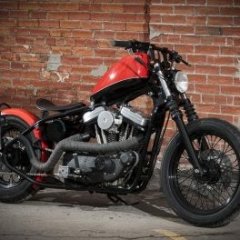Hisun E1 Parking Brake Return Spring
-
Similar Topics
-
By Rschrem
Hi, my 2010 Hisun will crannk but comes to a stop and only clicks. It has new battery and solinoid. Battery connections all seem good. Any ideas what the problem is?
-
By monkthumper
Fuel pump is good (i hotwired it) swapped relay with known good one no help. I'm leanin towards ECU but cannot find wiring diagram online. Dont know how fuel pump relay gets its signal, all fuses good, any help?
-
By Pick a name
The Axis 500 will not shift into low or reverse. I have high when it should be in low and all the other places it is reverse. The gears in the shift cover are fine and I shifted it when the cover was off and yet no change (so it can't be the shifting mechanism gears). I t has been difficult to get it into low for awhile. But now it is either high or reverse, no neutral either.
-
By Flanman55
I have purchased a used Supermach700 (2008), It runs great after a new choke cable but. The temp sensor on the thermostat house is unhooked and can not find where it plugs back in. The fan has been un hooked from the sensor in the rad and cant figure out how it goes back together properly. The fan was wired to a by pass switch and i just always leave it on but would like to work it properly. I assume the sensor went bad and not changed.
any help would be great.
thanks

-
By KWinTX
I just bought a new 2024 Hison 550 Stryker 2 months ago. this is the second time I have had this issue. It only has about 20 hours on it. The last time it happened we took it back to the dealer. it was a fuse. Since we live three-hour time driving there and back. I would like to find another solution if possible. I have tried all the fuses that seem to have anything to do with starting. Currently checking the battery. The battery is new. it came with the unit. It is probably 6 months old. the UTV has all power to everything electrical. lights turn signals and radio all work. When trying the key to start . it is 100% dead. as in it doesn't even click. There is a low whirring like the fuel pump is turning on though. The Unit was running and driving just fine. we shut it down for the night. The next morning my wife found it in this condition. Thanks for any Ideas or solutions??? Otherwise, it goes back to the dealer tomorrow. Just hope I didn't buy a lemon. Great little UTV when it does run.😅 anyone else ever have this Issue..?
-







Recommended Posts
Join the conversation
You can post now and register later. If you have an account, sign in now to post with your account.
Note: Your post will require moderator approval before it will be visible.